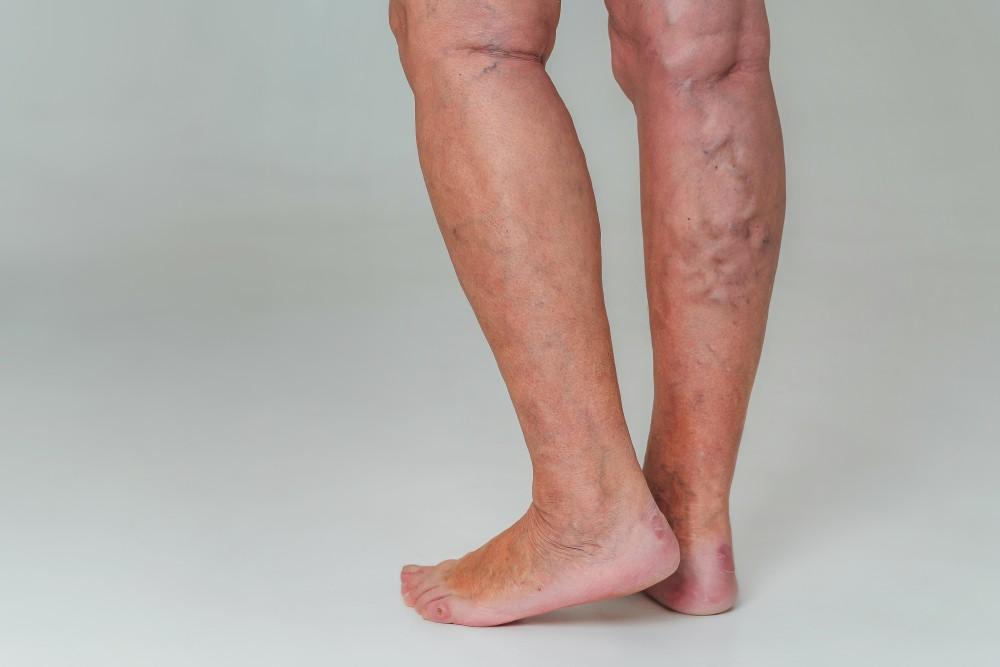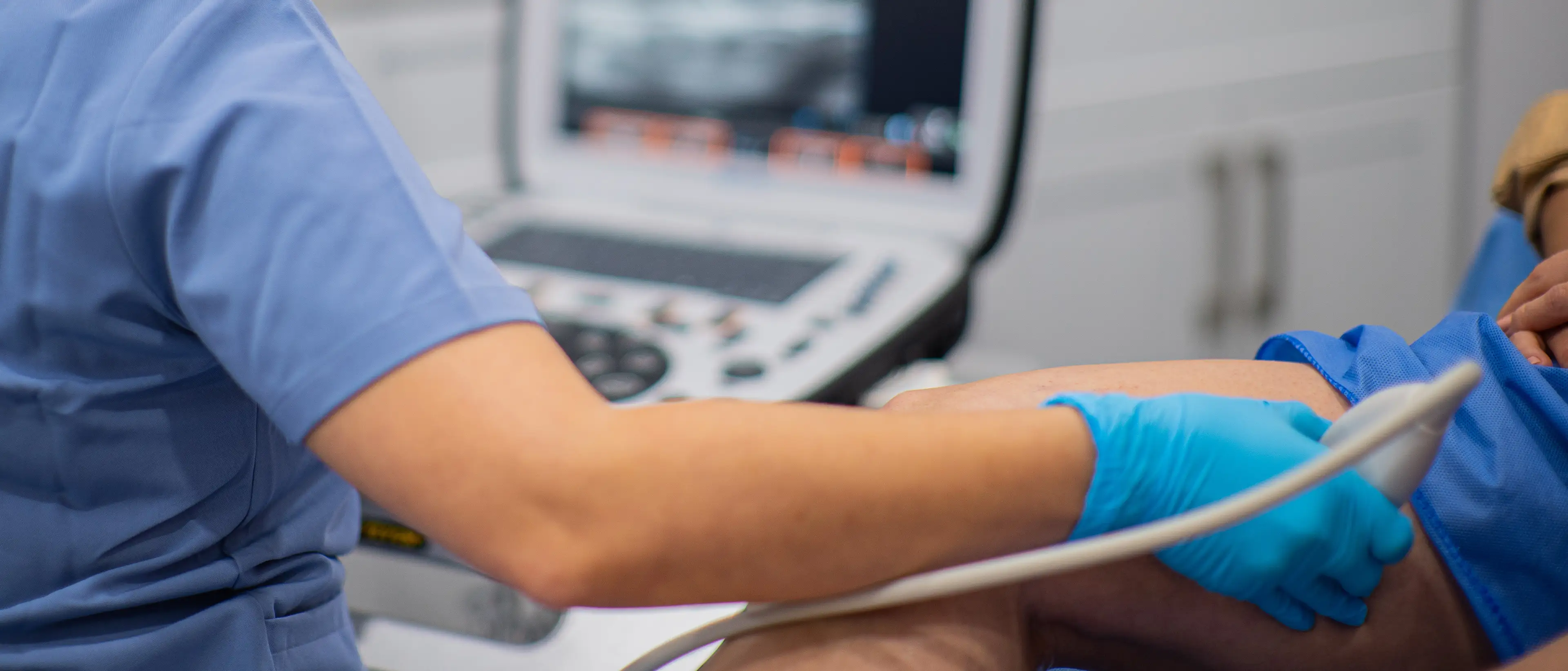🦵 Heavy, Swollen Legs and Vein Issues
Experiencing heavy and swollen legs is a common yet concerning symptom. While occasional swelling can be due to factors like prolonged standing or heat, consistent heaviness and swelling often signal a deeper issue, one that could involve your veins.
🔗 The Link Between Leg Heaviness and Vein Problems

Heaviness in the legs, often accompanied by swelling, can be a sign of vein-related issues. The veins in our legs are responsible for carrying deoxygenated blood back to the heart. If these veins become weakened or damaged, they can’t perform this function efficiently, leading to blood pooling in the lower legs. This can cause swelling, a feeling of heaviness, and sometimes visible bulging veins. Common vein conditions that result in these symptoms include varicose veins, venous insufficiency, and deep vein thrombosis (DVT).
⚠️ Common Causes of Swelling and Heaviness in the Legs
🌀 Varicose Veins
Varicose veins are among the most common causes of leg heaviness and swelling. These enlarged veins, often appearing as dark blue or purple bulges, occur when the valves inside the veins weaken or become damaged. The blood can’t flow efficiently, causing it to pool in the veins, resulting in swelling, discomfort, and that heavy feeling.
🔄 Chronic Venous Insufficiency (CVI)
CVI is a condition where the veins in your legs struggle to carry blood back to the heart due to weakened or damaged valves. This causes blood to pool in the veins, leading to chronic swelling, pain, and a heavy sensation in the legs. Over time, CVI can lead to skin changes, ulcers, and even blood clots.
🩸 Deep Vein Thrombosis (DVT)
DVT occurs when a blood clot forms in the deep veins of the legs. This condition can cause severe swelling, pain, and heaviness. It’s critical to seek medical attention promptly, as DVT can lead to complications such as pulmonary embolism, where the clot travels to the lungs.
⚖️ Obesity and Lifestyle Factors
Excess weight can put increased pressure on the veins, leading to poor circulation and contributing to the development of vein problems. A sedentary lifestyle, such as sitting or standing for extended periods, also places strain on the veins in the legs, increasing the risk of swelling and heaviness.
🩺 When to Seek Professional Care

If you’re experiencing persistent leg swelling, heaviness, or discomfort, it’s important to consult with a vein clinic or seek the advice of veins specialists. Early intervention can prevent more severe complications and improve the effectiveness of treatments. Here are some signs that you should seek professional care:
-
❗ If the swelling doesn’t subside after elevating your legs or resting
-
❗ If you notice pain, redness, or warmth in the affected area
-
❗ If you experience sudden swelling, especially if it’s accompanied by shortness of breath or chest pain (which could indicate a blood clot)
-
❗ If visible varicose veins are causing discomfort or are growing in size
-
❗ If you have a family history of vein-related issues or clotting disorders
🧑⚕️ Treatment Options for Swollen and Heavy Legs

If your symptoms are linked to vein problems, there are several treatment options available. These treatments aim to relieve discomfort, improve circulation, and address the underlying causes of swelling.
💡 Non-Surgical Treatments
-
🧦 Compression Stockings: These garments help improve circulation and reduce swelling by applying gentle pressure to the legs.
-
🏃 Lifestyle Modifications: Maintaining a healthy weight, staying active, and avoiding long periods of standing or sitting can help alleviate symptoms.
-
💉 Sclerotherapy: This procedure involves injecting a solution into the affected veins to cause them to close off and eventually disappear, providing relief from varicose veins.
🛠️ Surgical Treatments
For more severe cases, surgical interventions may be necessary. Varicose veins treatment options include vein stripping, where the affected vein is removed, or minimally invasive procedures like laser treatments or endovenous laser therapy (EVLT), which use heat to close off problem veins.
👩⚕️ The Role of Vein Specialists in Managing Your Health
Veins experts are trained to diagnose and treat a variety of vein-related issues. They conduct thorough assessments, including ultrasounds, to determine the root cause of your symptoms. Whether you’re dealing with varicose veins, chronic venous insufficiency, or a more serious condition like DVT, a vein specialist can recommend the most appropriate treatment plan for you.
Additionally, vein specialists provide valuable insights into lifestyle changes that can help manage symptoms and improve overall vein health. They can guide you on how to prevent future complications and offer preventive care strategies.
✅ Preventing Leg Swelling and Heaviness
While some vein conditions are unavoidable, there are steps you can take to reduce your risk of developing swollen and heavy legs. These include:
-
🏃♀️ Staying Active: Regular physical activity, such as walking or swimming, promotes healthy blood circulation.
-
🦶 Uplifting Your Legs: Elevating your legs above heart level can help reduce swelling and improve circulation.
-
🧦 Wearing Compression Garments: If you’re prone to vein problems, wearing compression stockings can prevent blood from pooling in your legs.
-
🥦 Eating a Healthy Diet: Maintaining a healthy weight and consuming foods that promote vascular health, such as those rich in fiber, can help support vein function.
📝 Steps to Take for Leg Health
If you’re experiencing heaviness or swelling in your legs, it’s crucial to understand the underlying causes and seek timely treatment. A vein clinic or veins specialists can provide the expert care needed to diagnose and treat vein problems effectively. With the right treatment plan, you can regain comfort and improve your quality of life.
By acting early, you can prevent more serious complications down the road. Whether through non-invasive procedures or lifestyle changes, managing your vein health is key to reducing symptoms and maintaining overall leg health. If you suspect that vein issues are contributing to your symptoms, don’t hesitate to reach out to a professional and take the necessary steps toward better circulation and improved comfort.
Andy Sharifi
Position
